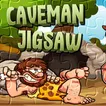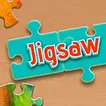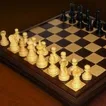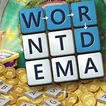






































































































Jigsaw Puzzle Games: A Cultural and Artistic Journey
Embarking on a cultural and artistic journey through jigsaw puzzle games is akin to piecing together the mosaic of human history and creativity. These intricate puzzles have long transcended their original purpose as mere pastimes to become windows into diverse worlds, offering glimpses into the essence of various eras, artistic movements, and the rich tapestry of global customs.
The origins of jigsaw puzzles date back to the 18th century, where they began as educational tools to teach geography. Fast forward to today, and they have evolved into a beloved hobby for all ages, providing a unique form of mental exercise that combines the challenge of problem-solving with the joy of artistic appreciation.
As a medium, jigsaw puzzles capture moments in time and space, freezing them into tangible experiences that can be revisited and reconstructed piece by piece. They celebrate the beauty of the world’s landscapes, the complexity of architectural marvels, and the vibrancy of cultural events. Each puzzle is a story, a lesson, and an invitation to explore and understand the world from the comfort of one’s own home.
Moreover, jigsaw puzzles have become a canvas for artists, allowing them to share their visions in a format that engages people in an interactive and meditative way. The act of assembling a puzzle requires patience and focus, often leading to a state of flow where time seems to stand still, and the mind is fully immersed in the task at hand.
In our fast-paced, digital-centric world, jigsaw puzzles stand out as a form of entertainment that encourages mindfulness and presents an opportunity for quiet reflection, alone or with loved ones. They are not just games; they are a celebration of the human spirit, creativity, and the endless quest for knowledge and beauty.
Exploring the World Through Jigsaw Puzzles
Imagine traversing the globe, from the comfort of your favorite armchair, with the simple scattering of puzzle pieces across your coffee table. Jigsaw puzzles offer a unique and immersive way to explore the world, capturing the essence of travel and the beauty of distant lands without ever needing to pack a suitcase.
Through the art of jigsaw puzzles, enthusiasts can embark on a virtual journey to some of the most iconic travel destinations. Picture assembling the vibrant hues of a bustling market in Marrakesh, or the serene blues and greens of the Lauterbrunnen Valley in Switzerland. Each piece placed is a step further into the heart of these picturesque landscapes, offering a momentary escape and a deeper appreciation for the world’s diverse beauty.
Historic cities and ancient streets come to life under the careful touch of the puzzle enthusiast. The cobblestone alleys of Trier, Germany, or the grandeur of Rome’s Colosseum are intricately depicted in puzzle form, allowing for a connection to the past and a reflection on the rich tapestry of human civilization.
Jigsaw puzzles serve as a bridge between cultures, inviting players to not only witness but also interact with the world’s wonders. They challenge us to see the bigger picture, to recognize the interconnectedness of our planet’s many landscapes and the stories they hold. With each piece interlocking with the next, we are reminded of the shared humanity and the common ground we stand on, despite the miles that may lie between us.
In this way, jigsaw puzzles do more than simply entertain; they educate and inspire, fostering a sense of global awareness and curiosity that transcends borders and opens our minds to the vast and varied world we inhabit.
The Evolution of Jigsaw Puzzles: From Past to Present
The humble beginnings of jigsaw puzzles trace back to the 1760s when European mapmakers pasted maps onto wood, cutting them into small pieces to serve as educational tools for children. This method of learning geography was both engaging and innovative, setting the stage for the evolution of puzzles into a popular form of leisure.
As the centuries turned, jigsaw puzzles grew in complexity and artistry, becoming a favorite pastime for adults as well. The Industrial Revolution brought advancements in printing and cutting techniques, allowing for mass production and more intricate designs. By the early 20th century, puzzles had become a craze, with intricate die-cut cardboard pieces replacing the earlier wooden models.
The Great Depression saw jigsaw puzzles soar in popularity as an affordable form of entertainment. They provided a sense of accomplishment and temporary escape from the harsh realities of the time. It was during this period that puzzles became not just a tool for learning but also a means of relaxation and social interaction, as families and friends gathered to piece together these miniature worlds.
In the digital age, jigsaw puzzles have seamlessly transitioned onto screens, expanding their reach and accessibility. Online puzzle games have introduced new dynamics, such as time challenges and competitive play, while still retaining the meditative and cognitive benefits of their physical counterparts. The digital realm has also allowed for endless customization, enabling users to create puzzles from personal photos or explore a vast array of themes and difficulty levels.
Despite the shift to digital, the essence of jigsaw puzzles remains unchanged. They continue to be a source of mental stimulation, a way to unwind, and a means to connect with others. From wooden map pieces to virtual, interactive games, jigsaw puzzles have stood the test of time, adapting and thriving as a beloved activity across generations.
Jigsaw Puzzles: Celebrating Local Cultures and Traditions
Jigsaw puzzles do more than just challenge the mind; they serve as cultural ambassadors, capturing the essence of local traditions and celebrations across the globe. Each puzzle piece is a fragment of a larger cultural narrative, inviting players to piece together and partake in the world’s rich heritage.
From the vibrant colors of a Mexican Day of the Dead festival to the intricate patterns of a Moroccan rug, puzzles allow us to experience and celebrate the diversity of human expression. They bring to life the joyous revelry of a New Orleans Mardi Gras parade, the solemn beauty of a Japanese tea ceremony, and the spirited dances of an Irish céilí.
Assembling these puzzles, we gain insights into the customs that define and distinguish different communities. We encounter the unique architecture of a Russian onion dome, the pastoral charm of an English cottage garden, or the majestic wildlife that roams the African savanna. Each image is a testament to the locale’s identity and the stories that have been passed down through generations.
The act of completing a puzzle that depicts such scenes is a form of active participation in the global cultural mosaic. It is an act of respect and admiration for the traditions and values that shape our world. Through the interlocking pieces, we not only build a visual spectacle but also construct bridges of understanding and appreciation for the myriad ways in which humanity celebrates life.
In this way, jigsaw puzzles are not just a solitary pastime but a communal experience that honors the beauty and variety of cultures worldwide. They remind us that, although we may live different lives, we are all part of a larger, interconnected human family.
Ensuring Digital Safety in Online Jigsaw Puzzle Games
In the realm of online jigsaw puzzle games, where players from around the world connect and share their passion for piecing together digital masterpieces, ensuring a safe and respectful environment is paramount. Digital safety encompasses protecting personal information, maintaining privacy, and fostering a community where harassment and abuse have no place.
To safeguard participants, reputable online puzzle platforms implement robust terms of service that outline acceptable behavior and the consequences of misconduct. These guidelines are designed to create a secure space where players can focus on the joy of the game without fear of exploitation or negative interactions.
Moreover, features such as reporting mechanisms are crucial. They empower users to flag inappropriate behavior or content, ensuring that the community remains a welcoming space for all. Quick and effective responses to such reports by the platform’s moderators help maintain a healthy online ecosystem.
Respectful gaming environments are nurtured by the community itself. Players are encouraged to engage with one another in a manner that is kind and considerate, recognizing that behind each avatar is a real person with feelings and a shared love for the art of jigsaw puzzles.
In conclusion, the collective effort to uphold digital safety in online jigsaw puzzle games is essential. It ensures that the virtual world of puzzles remains a positive, enriching experience, allowing players to immerse themselves in the challenge and beauty of the game, confident in the knowledge that their online journey is secure.